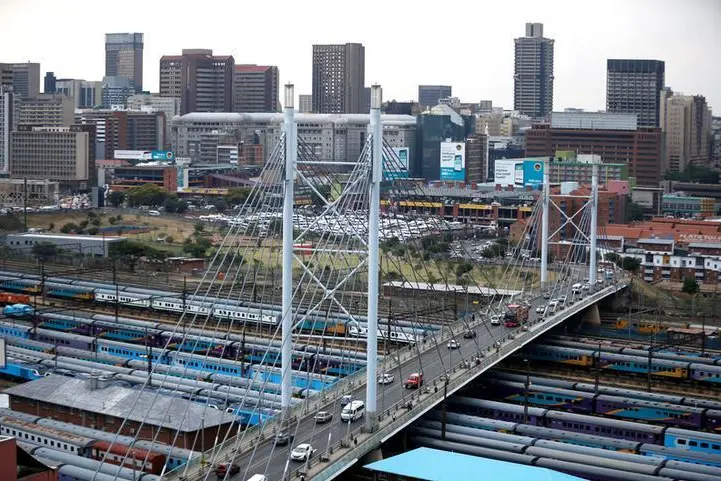PHOTO
The IMF has projected that South Africa's GDP growth will fall sharply by year-end, compared to 2022, as power cuts, volatile commodity prices and a challenging external environment contribute to weak growth.
According to government data, South Africa's economy expanded by 0.4% in Q1 this year after contracting by a 1.1% in Q4 2022. In year-on-year terms, the economy grew 0.2% in the first quarter, Statistics South Africa said.
"By year-end, we project real GDP growth to fall sharply from last year. Though we expect growth to pick up again in 2024, the pace is too slow to reduce unemployment, which at 32.9% remains close to an all-time high," the IMF said.
Additional far-reaching reforms are needed to achieve job-rich, inclusive, and greener growth. These include improving the country’s energy and logistical constraints, reducing barriers to private sector investment, addressing structural rigidities in the labor market, and tackling crime and corruption, the international agency said in a report on Thursday.
The country has faced rolling blackouts after years of mismanagement of the state-owned utility, Eskom, prompting the authorities to ease the registration process and licensing requirements for energy production to encourage private sector investment.
The government also announced a three-year debt relief arrangement to help Eskom establish its commercial viability and mitigate the energy crisis.
The South African Reserve Bank (SARB) said in its biannual health check last month that the threat of a grid failure due to repeated power cuts and persistent high inflation, have increased the systemic risks to the financial system. As a result of the extensive power cuts, the central bank now forecasts the GDP growth to be just 0.3% in 2023.
The IMF also said higher food and energy prices have pushed up inflation and raised inflation expectations. "Monetary policy normalization should continue to keep inflation expectations anchored and bring down headline inflation to the midpoint of the South African Reserve Bank’s 3–6 percent target range," said the Fund.
According to Statistics South Africa, agriculture slumped by 12.3%, weighed down by a decline in the production of field crops and animal products. Agriculture was the largest negative contributor in the first quarter, trimming 0.4 basis points from the GDP growth.
The IMF also points to the country’s elevated public debt level as one as of the highest among emerging markets. This limits the government’s ability to respond to shocks and meet growing social and development needs.
"Stabilizing the country’s debt and creating room in the budget for targeted social spending and public investment will require reducing the government wage bill and transfers to state-owned enterprises."
(Reporting by Brinda Darasha; editing by Seban Scaria)




















